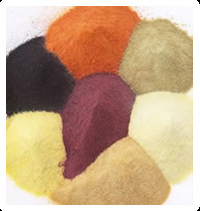Passionflower Purchase & Information

Alternative Names
Apricot Vine, Corona de Cristo, Fleischfarbige, Fleur de la Passion, Fleur de Passiflore, Flor de Passion, Grenadille, Madre Selva, Maracuja, Maypop, Maypop Passion Flower, Pasiflora, Passiflora, Passiflorae Herba, Passiflore Aubépine, Passiflore, Passiflore Officinale, Passiflore Purpurine, Passiflore Rouge, Passiflorina, Passion Vine, Passionaria, Passionblume, Passionflower Herb, Passionsblumenkraut, Purple Passion Flower, Water Lemon, Wild Passion Flower
Scientific Name
Passiflora Incarnata
Why Do People Use Passionflower?
The oral preparations of Passiflora incarnate (Passionflower), like passionflower powder, are used to treat insomnia, generalized anxiety disorder (GAD), gastrointestinal (GI) upset related to nervousness and anxiety and symptoms of opiate withdrawal. Passionflower is also effective for generalized seizures, neuralgia, spasmodic asthma, hysteria, attention deficit-hyperactivity disorder (ADHD), climacteric (menopausal) symptoms, palpitations, nervousness and excitability, high blood pressure, cardiac rhythm abnormalities, pain relief and fibromyalgia.
Topically - Passionflower powder is to the skin as bath preparations, for burns, for hemorrhoids and inflammation.
In Foods and Beverages - Extract of passionflower is used as a flavoring agent in various beverages and foods as well.
Is It Safe To Use?
Likely Safe - Oral consumption of passionflower powder in amounts commonly found in food items is considered safe. Passionflower has attained the rank of Generally Recognized As Safe status (GRAS) for use in foods items in the United States.
Oral and appropriate time period (short term) consumption for medicinal purposes is also consider safe.
Possibly Unsafe - Over-dose may cause side effects.
Possibly Unsafe In Pregnancy - Orally utilization of passionflower may cause adverse effects in pregnant females, as it causes uterine stimulation.
Avoid In Lactation - Passionflower should be avoided by breastfeeding females.
How Effective Is Passionflower?
Passionflower powder is possibly effective for following conditions:
• Mood disorders
• Anxiety
• Opiate withdrawal
There is insufficient information available to rate effectiveness of passionflower for:
• Insomnia
How Passionflower Works?
The most effective parts of Passiflora incarnate are the aerial parts. Passionflower consist of number of essential constituents, such as luteolin, vitexin, flavonoids apigenin, kaempferol and quercetin. The harman (harmala) alkaloids separated from passionflower incorporate harmaline, harmin, harmine, Harman and harmalol. Different constituents also include ethyl maltol and maltol.
Passionflower powder has hypnotic, antispasmodic, sedative, analgesic and anxiolytic effects.
Some confirmations recommend the passionflower constituent apigenin ties to main benzodiazepine receptors potentially causing anxiolytic impacts without impairing motor skills or memory.
Other confirmations propose that extract of passionflower may decrease amphetamine toxicity.
Some animal information recommend that the constituent maltol can result in CNS depression Some confirmations propose the harman alkaloids may stimulate CNS by means of activation monoamine oxidase system.
What Are The Side Effects /Adverse Reactions of Passionflower?
Passionflower powder may lead to severe side effects such as confusion, dizziness, ataxia and sedation in some patients.
There are few reports of other lethal side effects too. Vasculitis and other side effects have been reported with consumption of particular herbal product (Relaxir) created mainly from the passionflower fruits. There is also one case report involving a 34 year old woman who developed lethal side effect such as vomiting, nausea, prolonged QT interval, drowsiness and episodes of nonsustained ventricular tachycardia needing hospitalization for cardiac monitoring and IV hydration following utilizing of therapeutic doses of passionflower.
How Passionflower Interacts With Other Herbs and Supplements?
Herbs & Supplements causing Sedation - Consumption of passionflower powder with herbs that have sedative properties may enhance adverse and therapeutic effects. Supplements in such category are calamus, St. John's wort, 5-HTP, catnip, California poppy, kava, yerba mansa, hops, Jamaican dogwood, valerian, skullcap and other supplement as well.
How Passionflower Interacts With Drugs?
CNS Depressants - Interaction rating between passionflower and CNS depressant is moderate, so be careful about this mixture. Combination of Passiflora incarnate with other sedatives may enhance the potential risks of excessive drowsiness and sedation. Medications containing sedative properties include phenobarbital (Luminal), pentobarbital (Nembutal), clonazepam (Klonopin), secobarbital (Seconal), zolpidem (Ambien), lorazepam (Ativan) and other drugs as well.
How Passionflower Interacts With Foods?
Not known.
How Passionflower Interacts With Lab Tests?
Not known.
How Passionflower Interacts With Diseases and Conditions?
Surgery - There are CNS depressant activity reported by the consumption of Passionflower. Passionflower may be responsible for additive CNS depression when mixed with anesthesia and different medications used after and even during surgical activities. So patient are advised to stop using passionflower at least before two weeks before their suggested surgical procedures.
What Should Be the Dose/Administration of Passionflower?
ORAL In order to treat generalized anxiety disorder (GAD), people orally take passionflower liquid extract up to 45 drops on daily basis. Special tablet contains 90 mg of passionflower powder can be used on daily basis.
For lessening symptoms related with opiate withdrawal, 60 drops liquid extract of passionflower is mixed with clonidine (0.8 mg) and should be utilized on daily basis.
For insomnia treatment, one cup of passionflower tea is utilized one hour before bedtime.
TOPICAL Passionflower can topically be utilized for treating hemorrhoids by mixing 20 gm. of passionflower powder in 200 ml water.
Comments
About 450 years ago, Spanish explorers found passionflower in forests of Peru. Passionflower was approved as a sleep supplement and OTC sedative in the US, but then it was banned in market in 1978 because its effectiveness and safety was not proven.
General Certificate of Analysis (COA)
Specification sheet links below are a standard copy of the COA less the batch or lot number and manufactures dates. Specification sheet can be dated and should only be considered as a general information. Please contact and request an up to date COA if needed for specific updated information before placing order by filling out the contact form with product name and SKU number. If ordering quantities of twenty five kilos or more contact for availability.
